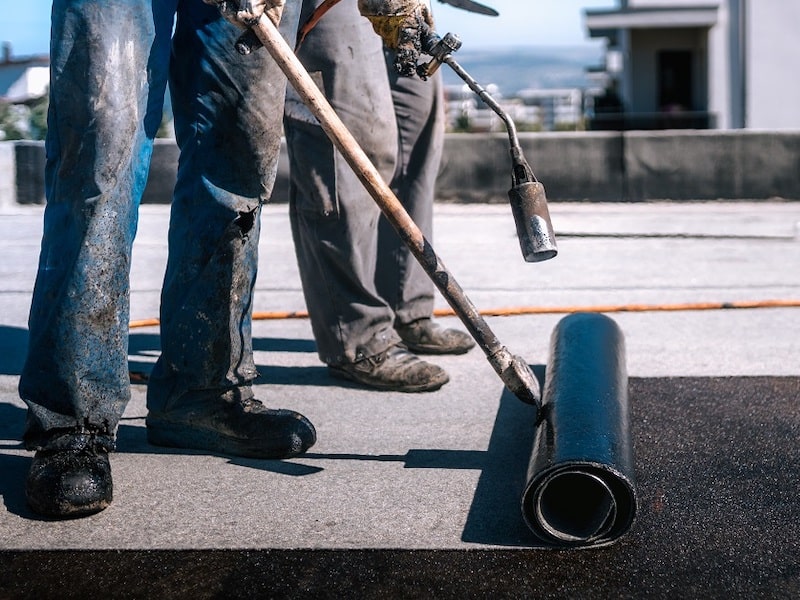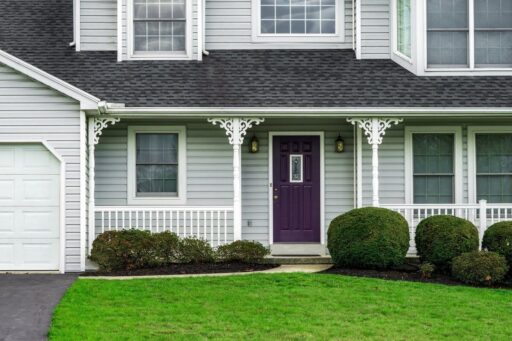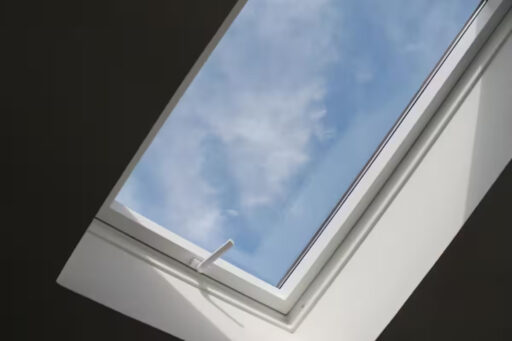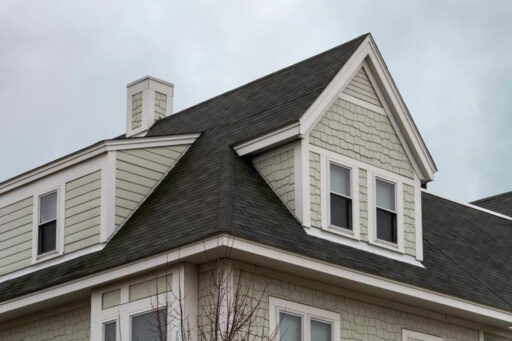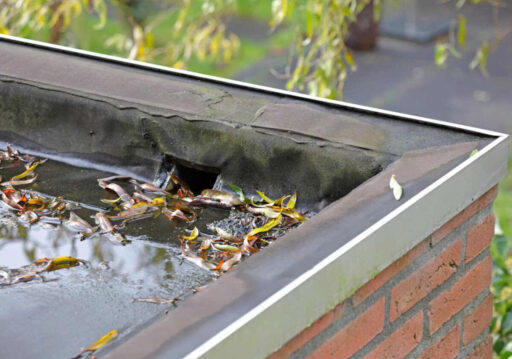For property owners and managers in Vancouver considering a roof replacement, understanding how long does it take to replace a flat roof is crucial for effective planning. This article aims to provide a detailed overview of the factors influencing the duration of flat roof replacement, typical timeframes, potential challenges, and strategies for efficient project management.
Why Bother Replacing Your Flat Roof Anyway?
Replacing a flat roof is a significant but necessary investment in property maintenance. A well-functioning roof is essential for:
- Protection against environmental elements, particularly Vancouver’s frequent precipitation
- Maintenance of interior temperature control
- Prevention of moisture-related issues such as mould and structural decay
Additionally, a new roof can offer benefits including:
- Improved energy efficiency, potentially reducing utility costs
- Enhanced property value
- Improved aesthetic appeal of the building
- Compliance with updated building codes and regulations
- Opportunity to incorporate modern roofing technologies
Factors Influencing Replacement Timeline
Before we delve into specific timeframes, it’s crucial to understand that not all roof replacements are created equal. Several factors can significantly impact how long does it take to replace a flat roof.
1. Roof Dimensions
The size of your roof is a primary factor in determining the project duration. While it’s obvious that larger roofs generally take longer to replace, the relationship isn’t always linear. Here’s why:
- Larger roofs may allow for more efficient setup of equipment and materials
- Smaller roofs with numerous obstacles (vents, chimneys, etc.) can be surprisingly time-consuming
- Very large roofs might require multiple crews working simultaneously
As a rule of thumb, expect about 1-2 days of work per 1000 square feet of roofing area.
2. Roofing Material Selection
The material you choose for your new roof can make a big difference in installation time. Different roofing materials have varying installation times:
- Modified bitumen: Relatively quick installation, especially with torch-down application (1-2 days for average-sized roof)
- Built-up roofing (BUR): More time-intensive due to multiple layer application (2-4 days for average-sized roof)
- EPDM or TPO: Efficient installation, particularly for expansive, unobstructed roof areas (1-3 days for average-sized roof)
- PVC: Moderately efficient installation, requiring specialized expertise (2-3 days for average-sized roof)
- SPF (Spray Polyurethane Foam): Quick application, but requires precise weather conditions; typically completed within 1–2 days for average-sized roofs.
3. Weather Conditions
Climate plays a significant role in roofing projects, especially in Vancouver’s variable weather. Factors include:
- Precipitation: Most roofing work requires dry conditions. Even light rain can halt work.
- Temperature extremes: Can affect material handling and application. Some materials require specific temperature ranges for proper installation.
- Wind: May impede the manoeuvring of roofing materials and create safety concerns for workers.
Always factor in potential weather-related delays when planning your project timeline.
4. Existing Roof Condition
The state of the current roof structure can significantly impact the project timeline. Unforeseen issues such as water damage, wood rot, or structural deficiencies may necessitate additional repairs, extending the overall duration. A thorough pre-project inspection can help anticipate some of these issues.
Detailed Timeline for Flat Roof Replacement
While every project is unique, here’s a general breakdown of the flat roof replacement process and estimated timeframes:
- Preparation and Setup: 1/2 to 1 day
- Site assessment
- Equipment setup
- Safety measures implementation
- Removal of Old Roofing: 1-2 days
- Tear off existing roofing material
- Inspect and prepare the roof deck
- Repairs and Structural Work: 1-3 days
- Address any discovered issues (e.g., water damage, wood rot)
- Reinforce or replace damaged decking
- Installation of New Roofing System: 1-5 days
- Apply underlayment and insulation
- Install new roofing material
- Timeframes vary by material type (as mentioned earlier)
- Flashing and Detail Work: 1-2 days
- Install roof edges, copings, and flashings
- Seal around roof penetrations
- Clean-up and Final Inspection: 1/2 to 1 day
- Remove debris and equipment
- Conduct final quality checks
Based on these stages, here are typical overall timeframes:
- Small residential roof (e.g., garage): 2-3 days
- Medium-sized roof (typical single-family residence): 3-5 days
- Large commercial roof: 5-10 days or more
It is advisable to allow for potential extensions to these estimated timeframes due to unforeseen circumstances.
Potential Challenges Affecting Project Duration
Even with the best planning, sometimes things don’t go exactly as expected. Here are a few challenges that might extend your project timeline:
- Discovery of hidden structural damage: Can add 2-5 days depending on severity
- Material supply chain disruptions: May delay project start or cause work stoppages
- Municipal permit processing delays: Can take 5-10 business days before work can begin
- Extreme weather events: Can cause multi-day delays
- Scheduling conflicts with roofing crews, particularly during peak seasons
Strategies for Efficient Project Management
While some factors are out of your control, there are things you can do to help keep your project on track:
- Engage experienced roofing professionals with a track record of timely project completion
- Conduct thorough pre-project planning and inspections to identify potential issues early
- Schedule work during typically drier seasons when possible (late spring to early fall in Vancouver)
- Maintain flexibility in budget and timeline to accommodate unforeseen circumstances
- Ensure all necessary permits are obtained well in advance of the project start date
- Consider temporary relocation or protection plans for building occupants and contents
- Communicate regularly with your roofing contractor about progress and any potential delays
Cost Considerations for Vancouver Property Owners
While prices can vary significantly based on project specifics, the following ranges provide a general guideline for budgeting purposes:
- Small residential roof (up to 93 m²): $8,000 – $15,000
- Medium residential roof (93 – 186 m²): $15,000 – $30,000
- Large residential or small commercial roof (186 – 465 m²): $30,000 – $75,000
- Large commercial roof (465+ m²): $75,000 and above
It is recommended to obtain detailed quotation from a reputable roofing company for accurate pricing. Remember that the lowest bid isn’t always the best choice – consider factors like material quality, warranty terms, and the contractor’s reputation. While prices can vary based on project specifics, budgeting considerations should also factor in how long does it take to replace a flat roof, as delays can add to labour costs.
Summary
Flat roof replacement is a significant undertaking that requires careful planning and execution. By understanding the factors that influence how long does it take to replace a flat roof, property owners can approach the process with realistic expectations. Engaging qualified professionals and maintaining flexibility throughout the project can help ensure a successful outcome, resulting in a durable and aesthetically pleasing roof.

